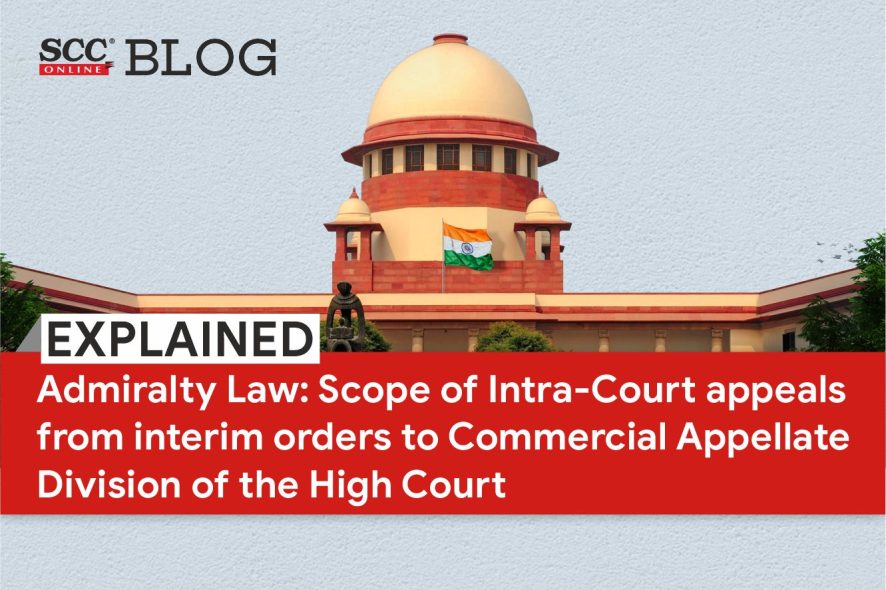Supreme Court: The bench of Indira Banerjee* and AS Bopanna, JJ has held that an appeal does not lie to the Commercial Appellate Division of the High Court from an order of the Commercial Division (Single Bench) of the same High Court for addition of a party in an admiralty suit governed by the Admiralty (Jurisdiction and Settlement of Maritime Claims) Act, 2017.
Going into the legislative intent, the Court observed that it could not possibly have been the legislative intent of the Admiralty Act to make all interim orders appealable.
“Such a wide interpretation of the expression “interim order” would mean that any party would be able to delay the trial and final disposal by filing appeals even from inconsequential orders calling for affidavits and the like.”
Interpreting the Admiralty Act and the Commercial Courts Act, 2015, the Court observed that orders passed under the Admiralty Act pertaining to the exercise of in rem jurisdiction by the High Court are the only orders which are appealable under Section 14 of the Admiralty Act, whereas orders passed in the trial of a suit and on applications made under the provisions of the Code of Civil Procedure, 1908 (CPC) are not orders under the Admiralty Act but orders under the CPC which would be appealable only if they fall under Order 43 of the CPC as provided in Section 13 of the Commercial Courts Act.
“If such an order under the CPC which does not fall under Order 43 of CPC is held to be appealable, then the entire purpose of the Commercial Courts Act would be defeated, and every single order passed in a course of a trial of an admiralty suit would be appealable under section 14 of the Act. Such orders would be large in number including orders in relation to discovery, inspection, case management hearing, admissibility of evidence, framing of issues, interrogatories, etc. This would make a mockery of the intended purpose of Parliament in enacting the Commercial Courts Act, which is to expedite trials in commercial suits of a specified value, and restrict the number of interlocutory appeals.”
The Court rejected the argument that Section 14 read with Section 12 of the Admiralty Act, 2017 demonstrates legislative intent to permit appeals from any interim order passed by the Single Judge of a High Court exercising admiralty jurisdiction to a Division Bench of that High Court without any restriction or limitation. It was explained that the expression “any interim order” has to be read harmoniously with Order 43, Rule 1 CPC in view of Section 12 of the Admiralty Act read with Section 13 of the Commercial Courts Act.
It is not the intent of the overriding provision of Section 14 to nullify Section 12 of the Admiralty Act. Section 12 of the Admiralty Act applies to all proceedings in the High Court whether they be original proceedings or appellate proceedings. On a harmonious reading of Sections 12 and 14 of the Admiralty Act with Section 13 of the Commercial Courts Act, an intra-court appeal under the Admiralty Act to the Commercial Division of the High Court would lie from any judgment, decree or final order under the Admiralty Act or an interim order under the Admiralty Act relatable to the orders specified in Order 43, Rule 1.
[OWNERS AND PARTIES INTERESTED IN THE VESSEL M.V. POLARIS GALAXY v. BANQUE CANTONALE DE GENEVE, 2022 SCC OnLine SC 1293, decided on 23.09.2022]






